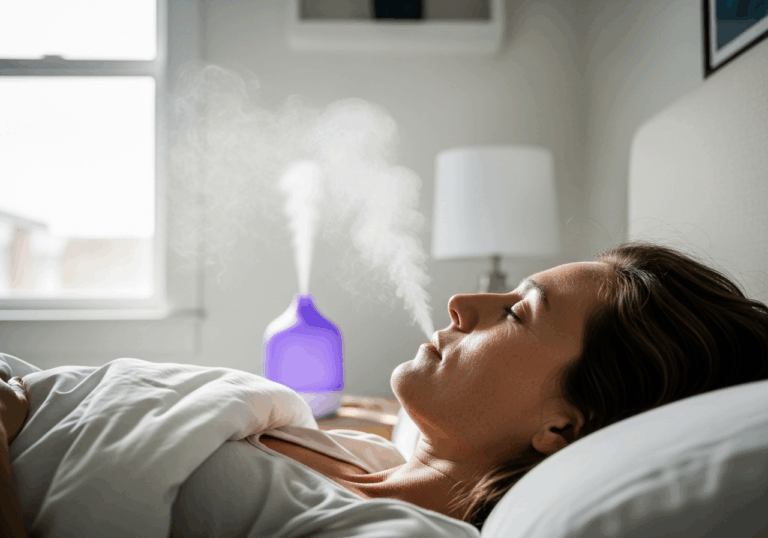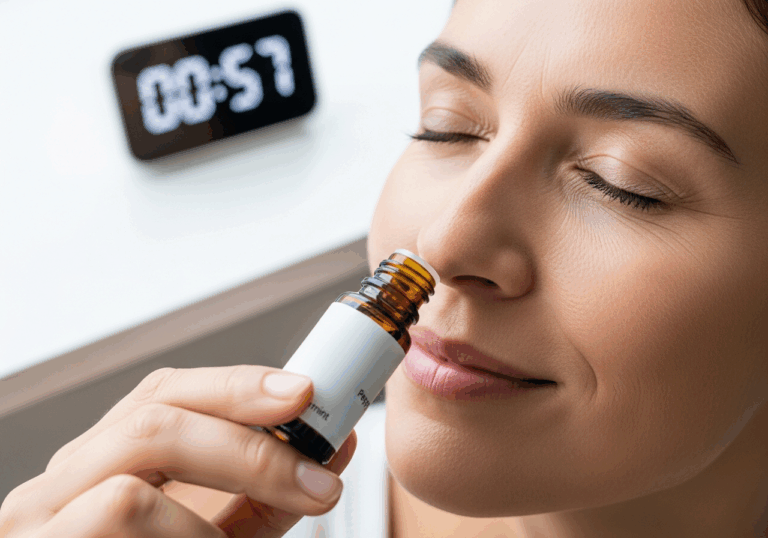Science-Backed Tips
Breathe Easy: Rose Oil Reduces Stress
Controlled breathing with rose oil lowers cortisol by ~30%.
📊 Did you know?
💡 Why It Matters
1️⃣
Lowering cortisol levels can significantly improve mood and reduce anxiety in stressful environments.
2️⃣
A 30% reduction in stress hormones can enhance overall mental health and wellbeing.
3️⃣
Incorporating scent therapy into daily routines may provide a cost-effective method for stress management.
✅ Try These Micro-Tips
🎯
Practice controlled breathing for 10 minutes daily while inhaling rose oil.
🎯
Use rose oil in a diffuser during high-stress tasks to enhance relaxation.
🎯
Combine rose oil inhalation with mindfulness exercises for improved stress reduction.
🎯
Inhale rose oil before important meetings or presentations to lower anxiety.
📚 The study
The study revealed a significant reduction in salivary cortisol levels, a key stress hormone, indicating that the calming scent of rose oil can effectively lower stress.
Additionally, brain activity measurements showed a promotion of relaxed brain states, further enhancing the participants’ mood.
This research highlights the importance of integrating scent therapy into our daily routines as a simple yet effective method for managing stress.
By combining the therapeutic benefits of aroma with controlled breathing techniques, individuals can experience a notable uplift in their mental well-being.
With a potential 30% reduction in stress hormones, incorporating rose oil into your day could be a game-changer for those navigating high-stress environments.
This study not only sheds light on the physiological benefits of scent but also emphasizes the accessibility of such practices for improving overall mental health.
Embracing the power of scent and breath may offer a cost-effective solution for anyone looking to enhance their mood and reduce anxiety, making it a valuable addition to stress management strategies.
❓ Frequently Asked Questions ❓
Learn more
How does rose oil inhalation affect stress levels?
Inhaling rose oil during high-stress tasks can reduce salivary cortisol levels by approximately 30%. This reduction in stress hormones can lead to an uplifted mood and improved mental well-being.
What is the significance of lowering cortisol levels?
Lowering cortisol levels is crucial as it can significantly improve mood and reduce anxiety in stressful environments. A decrease in stress hormones contributes to better overall mental health and well-being.
How can I incorporate rose oil into my daily routine?
You can incorporate rose oil by practicing controlled breathing for 10 minutes daily while inhaling the scent. Additionally, using a diffuser with rose oil during high-stress tasks can enhance relaxation.
What are the benefits of combining scent therapy with breathing exercises?
Combining scent therapy with controlled breathing can promote relaxation and lower stress hormones effectively. This approach enhances mood and can be a cost-effective method for stress management.
How does rose oil inhalation impact brain activity?
Rose oil inhalation has been shown to promote relaxed brain states during high-stress tasks. This change in brain activity is associated with the significant reduction of cortisol levels.
Can rose oil help before important meetings or presentations?
Yes, inhaling rose oil before important meetings or presentations can help lower anxiety levels. This practice can create a more relaxed state of mind, enhancing performance.
What is the recommended duration for controlled breathing with rose oil?
It is recommended to practice controlled breathing for about 10 minutes while inhaling rose oil. This duration is effective in achieving a noticeable reduction in stress levels.
Is rose oil inhalation a scientifically supported method for stress reduction?
Yes, studies have shown that inhaling rose oil during stressful tasks leads to a significant reduction in salivary cortisol levels. This evidence supports its effectiveness as a stress reduction technique.
How often should I use rose oil for stress management?
Incorporating rose oil into your routine as needed during high-stress situations is beneficial. Regular use, especially in combination with mindfulness exercises, can enhance its stress-reducing effects.
What are the physiological effects of rose oil inhalation?
The physiological effects include a significant reduction in cortisol levels and promotion of relaxed brain states. These changes contribute to improved mood and overall mental health.





